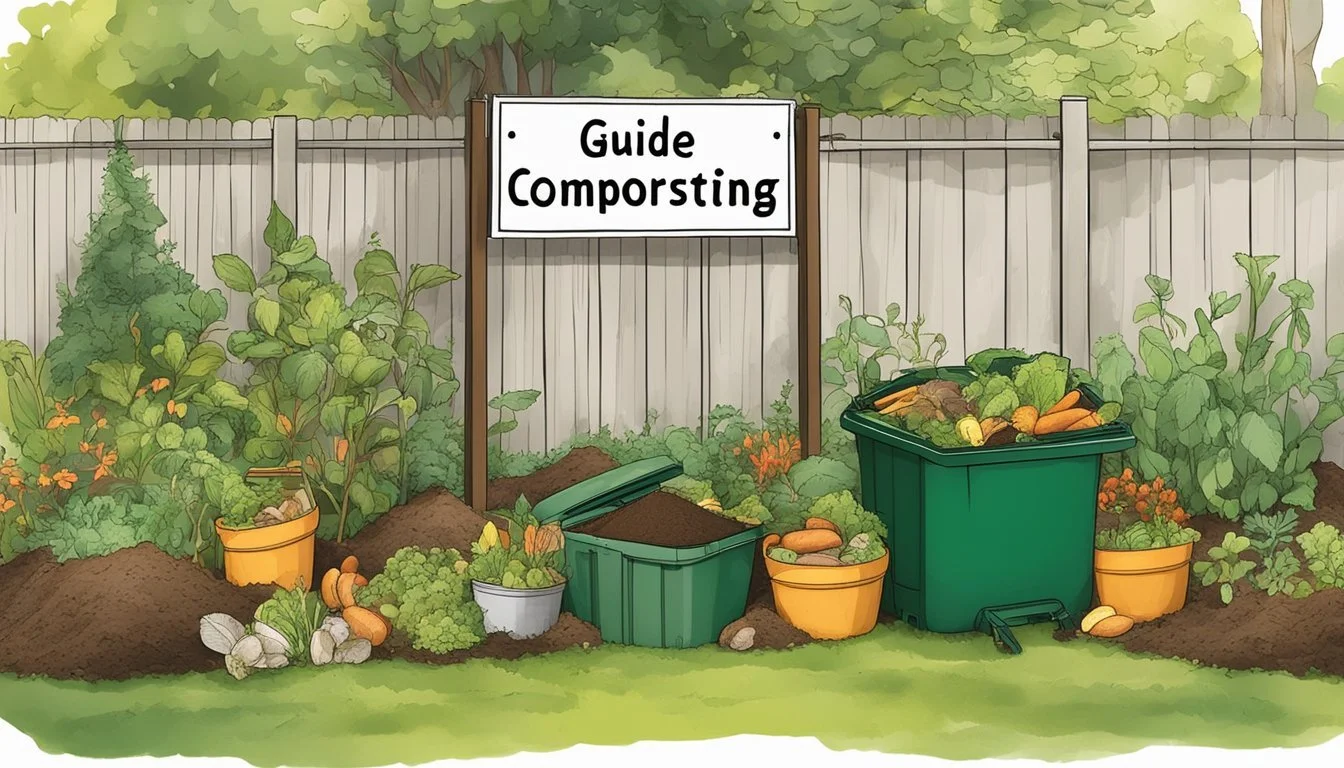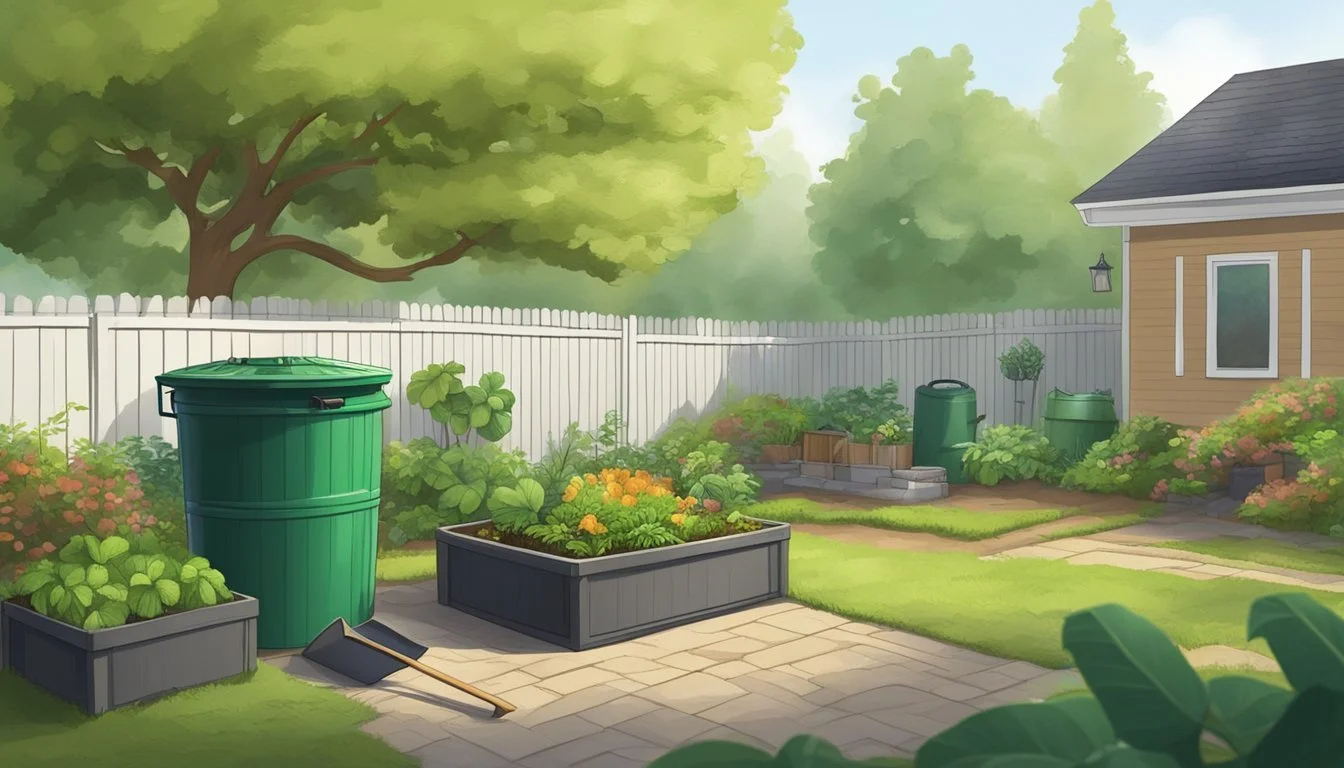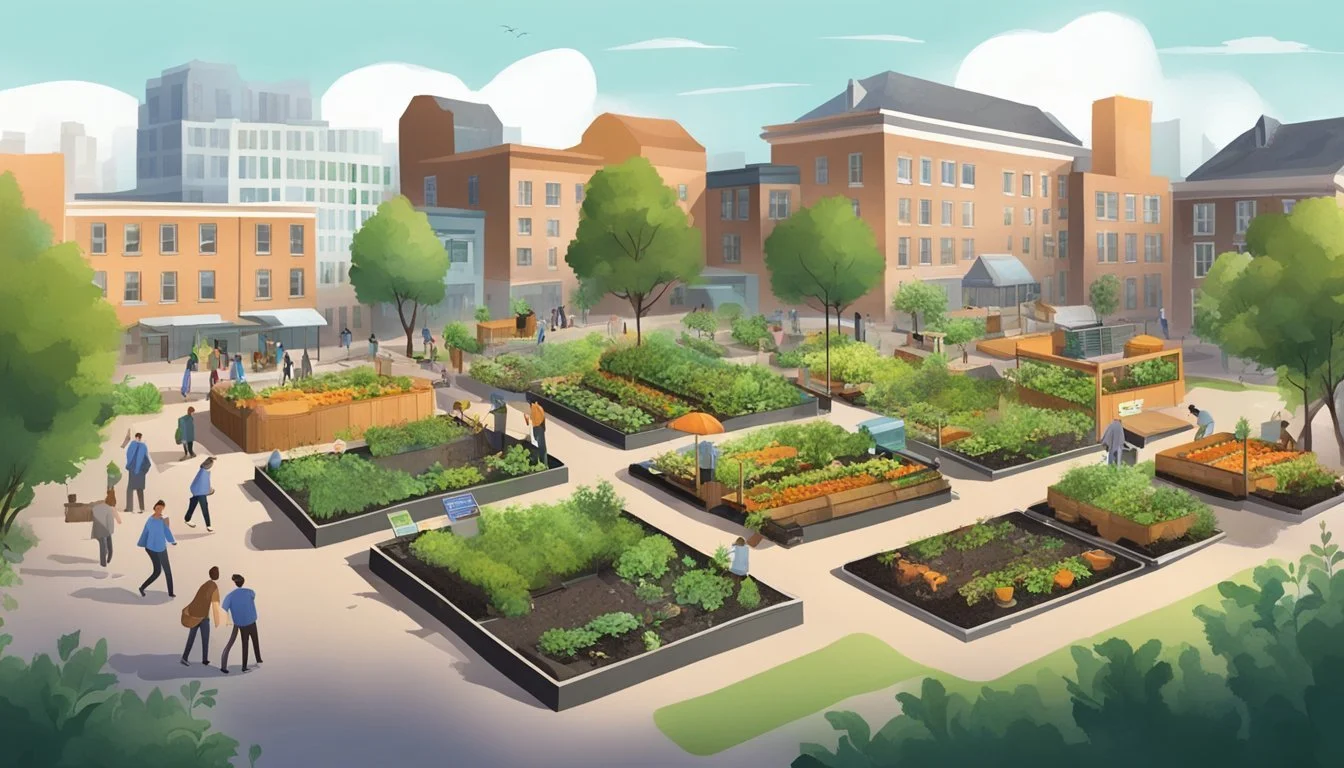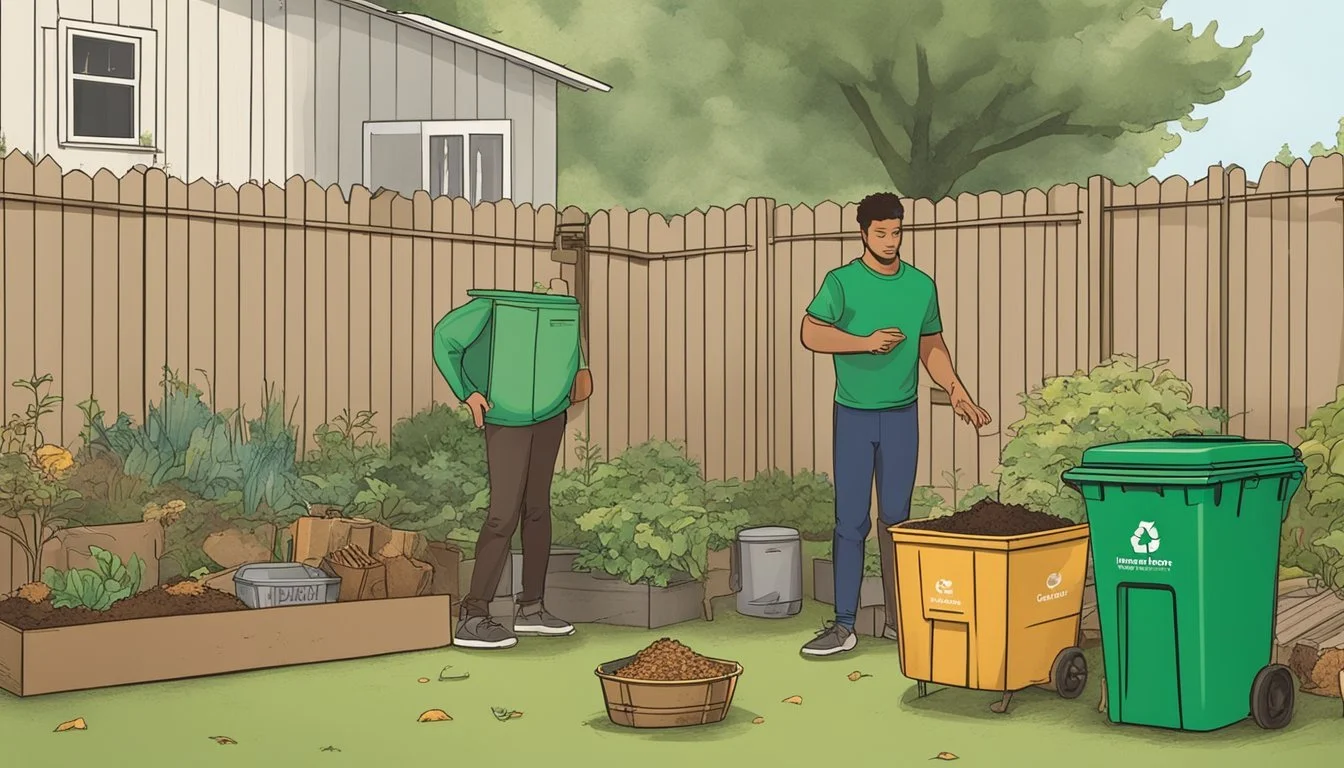Guide to Composting in Everett, WA
Essential Tips for Residents
Composting is an effective way to manage organic waste, turning kitchen scraps and yard waste into a nutrient-rich soil amendment for gardens and landscapes. In Everett, Washington, residents have various opportunities to engage with composting practices. This natural recycling process not only diverts waste from landfills but also enhances soil health and reduces the need for chemical fertilizers.
The City of Everett encourages residents to take part in composting by offering resources and information on how to begin and maintain a successful composting system. Whether it is leaf litter, grass clippings, or food scraps, composting these materials transforms them into a beneficial product, while also contributing to environmental sustainability.
For those new to composting, the City provides guidance on what can be composted, from untreated wood to popsicle sticks, as long as the products meet certain standards. Through composting, Everett residents can reduce their environmental footprint and foster a greener, more sustainable community.
Understanding Composting
Composting is a vital process that turns various forms of organic waste into a valuable resource beneficial for the soil and environment. It diverts food and garden waste from ending up in a landfill, reducing the solid waste stream.
Benefits of Composting
Composting has several advantages. It enriches the soil, helping retain moisture and suppress plant diseases and pests. Moreover, it reduces the need for chemical fertilizers and encourages the production of beneficial bacteria and fungi. In Everett, WA, compost adds healthy nutrients back to the land and has been identified as a way to reduce over 40% of the residential waste in Washington.
Composting vs Recycling
While both composting and recycling aim to manage waste sustainably, they serve different purposes. Composting is the biological decomposition of organic waste, such as food scraps and yard waste, which can be used as a natural fertilizer. Recycling, on the other hand, involves processing items made from materials like paper, glass, and plastic, so they can be remanufactured into new products. Both processes play crucial roles in conserving natural resources and reducing the reliance on landfills.
Key Composting Terms
Understanding composting requires familiarity with its terminology:
Compost: Decomposed organic material that can be used as a soil amendment.
Fertilizer: A substance that is added to soil to supply nutrients to plants.
Organic Waste: Material that is biodegradable and comes from either a plant or an animal.
Food Waste: A type of organic waste that is generated from food items that are not consumed.
Compost Facilities: Places where composting is performed on a larger scale under controlled conditions.
Transfer Station: A site where recyclables and waste materials are collected before being taken to a landfill or composting facility.
Landfill-Disposed Organic Material: Organic material that is thrown away in the garbage and ends up in a landfill instead of being composted.
By incorporating composting practices, individuals and communities in Everett, WA, contribute to a sustainable environment, turning waste into a resource that supports soil health and reduces landfill use.
Setting Up a Composting System at Home
Creating an effective composting system at home requires selecting the right location and method, understanding which materials are compostable, and knowing what to exclude to maintain a healthy compost pile.
Choosing the Right Location
The right location for a composting system is critical. It should be a well-drained area with good access to water and partial shade to maintain moisture without overheating. The location should be convenient for adding materials regularly and should avoid being too close to the home to prevent any potential odors.
Selecting a Composting Method
There are various composting methods suitable for different types of homes and preferences. Traditional bin or pile composting is accessible for most homeowners. For small spaces, methods like worm composting or the Japanese method bokashi may be appropriate. Everett residents may also consider participating in community composting programs offered by local organizations.
Materials You Can Compost
A healthy compost pile includes a balanced mix of greens such as food scraps and browns like dry leaves. Here’s a simple breakdown:
Greens (Nitrogen-rich)
Food scraps (fruits, vegetables)
Coffee grounds
Fresh grass clippings
Browns (Carbon-rich)
Dry leaves
Straw
Paper towels (unbleached, non-inked)
Maintaining a mix of greens and browns is essential for compost balance. Moisture should be monitored to keep the pile as wet as a wrung-out sponge.
Materials to Avoid
Some items may disrupt the composting process or introduce harmful elements. The following should never be added to a compost pile:
Inorganic materials: Plastic, glass, metals, tin
Diseased plants: May spread pathogens
Chemically treated yard waste: Can contaminate the compost
Pet wastes: Could contain parasites or germs
By carefully selecting the right materials for your compost bin, you can ensure that the resulting compost is safe and nutrient-rich for use in gardens and landscaping around your home.
Community and Municipal Composting Efforts
In Everett, WA, the community and local governments have established initiatives to manage organic waste through composting. These efforts aim to reduce solid waste in landfills, promote recycling, and provide residents with access to compost facilities.
Everett's Public Compost Facilities
Everett's commitment to sustainability is evidenced by its public composting facilities which enable the conversion of food scraps and yard waste into nutrient-rich soil amendments. The City of Everett does not directly provide waste removal services, but it supports and promotes composting programs for residents to responsibly dispose of their organic waste.
How to Participate in Municipal Composting
To participate in Everett's composting initiatives, residents can check with their waste collection service providers to see if they offer curbside pickup for compostable materials. For instance, businesses and individuals may contract for curbside collection similar to regular recycling services. Everett residents can also attend city-sponsored recycling events geared towards education and practical support for sustainable waste management practices. Details on these events and guidelines can be found on the City's event page, ensuring compliance and maximizing composting benefits.
Reducing Waste Through Mindful Consumption
Mindful consumption in Everett, WA, involves strategies such as preventing food waste, selecting products that are either compostable or recyclable, and spreading awareness on waste reduction. These practices contribute to conserving natural resources and reducing the burden on garbage disposal systems.
Preventing Food Waste
In Everett, households can significantly cut down on food waste by planning meals ahead and buying only what is necessary. The city promotes using water and energy more efficiently, which also applies to food utilization. Every resident can play a role in ensuring that edible food does not end up in the landfill.
Choosing Compostable and Recyclable Products
Choosing products with compostable packaging aids in diverting organic waste from the garbage stream. Everett's guidelines encourage the use of materials that comply with ASTM D6400 or ASTM D6868 standards which are designed for composting. By prioritizing these products, citizens help reduce landfill use and support recycling efforts.
Educating Others About Waste Reduction
Education is pivotal in fostering a community that values and practices sustainable waste management. Everett's residents are urged to engage in discussions about reducing waste, composting at home, and embracing behaviors that protect the city's natural resources. Through education, they empower others to make informed choices that benefit the environment.
Frequently Asked Questions
This section addresses common inquiries about composting practices in Everett, WA, and offers clear, reliable guidance for both novice and experienced composters.
Can I Compost Paper Towels?
Paper towels that are not contaminated with oil or chemical cleaners can be composted. They are a valuable resource for creating a balanced compost pile by providing carbon-rich material.
What Should I Do With Leftover Yard Debris?
Leftover yard debris, such as leaves, branches, and grass clippings, should be added to a compost pile. It serves as an important green component that provides nitrogen — key to successful composting.
How Can I Compost Without a Yard?
Residents without a yard can make use of indoor composting systems such as a worm bin or a Bokashi bin. These systems convert food scraps and paper products into compost suitable for houseplants and container gardens.
Troubleshooting Common Composting Issues
Odor: Ensure proper balance between green and brown materials.
Pests: Use a bin with a lid and avoid adding meat, dairy, or oily foods.
Slow Decomposition: Turn the pile regularly to improve aeration.
Benefits of Composting for the Environment
Composting reduces the volume of garbage sent to landfills and lessens the release of methane, a potent greenhouse gas. Composted material returns nutrients to the soil, conserving natural resources.
Improving Soil Health With Compost
Adding compost to soil improves its structure, fertility, and ability to retain water. It acts as a natural fertilizer, enriching soil without the need for chemical fertilizers.
Why Avoiding Tin and Plastic is Important
Tin and plastic do not break down in composting processes and can release harmful chemicals. They should be kept out of compost to prevent contamination of the valuable compost and the greater environment.






